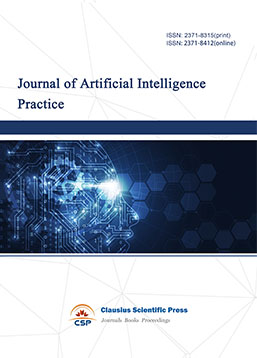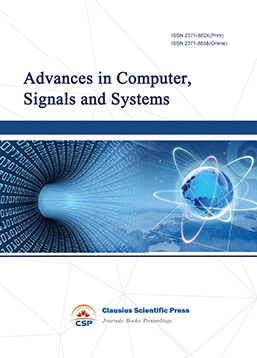The Empirical Research on the Willingness of Information Disclosure for Mobile Social Platform Users---Taking Wechat as an Example
DOI: 10.23977/crypis.2019.11001 | Downloads: 46 | Views: 6003
Author(s)
Wang Peng 1
Affiliation(s)
1 School of Economics and Management, Dalian University, No.10, Xuefu Avenue, Economic & Technical Development Zone, Dalian, Liaoning, China
Corresponding Author
Wang PengABSTRACT
Based on the theory of privacy calculus and technology acceptance model (TAM), the study constructed the theoretical model on the impact factors of the information disclosure willingness of mobile social platform users. The study did the empirical study using Wechat, and chose activate Wechat users to do the research. The results showed that: perceived usefulness, perceived ease of use are positively related to the mobile social platform user information disclosure willingness , while privacy concerns is negative related to it; compared to the perceived ease of use and privacy concerns, perceived usefulness of information disclosure for users of mobile social platform is more significant; the moderating effect of privacy concerns for perceived usefulness, perceived usefulness and information disclosure willingness is not significant.
KEYWORDS
Mobile social platform, Information disclosure, Privacy calculus, Tam, Sem, WechatCITE THIS PAPER
Peng Wang, The Empirical Research on the Willingness of Information Disclosure for Mobile Social Platform Users---Taking Wechat as an Example, Crypto and Information Security (2019) Vol. 1: 1-5. DOI: http://dx.doi.org/10.23977/crypis.2019.11001.
REFERENCES
[1] Wenshun Lv. (2017) Adaptive tracking control for a class of uncertain nonlinear systems with infinite number of actuator failures using neural networks. Advances in Difference Equations, 5, 96-108.
[2] Lei Deng. (2017) A sparse autoencoder-based deep neural network for protein solvent accessibility and contact number prediction. BMC Bioinformatics, 6, 356-374.
[3] Novanto Yudistira. (2018) Gated spatio and temporal convolutional neural network for activity recognition: towards gated multimodal deep learning. EURASIP Journal on Image and Video Processing, 1, 119-136.
| Downloads: | 123 |
|---|---|
| Visits: | 10040 |
Sponsors, Associates, and Links
-
Power Systems Computation

-
Internet of Things (IoT) and Engineering Applications

-
Computing, Performance and Communication Systems

-
Journal of Artificial Intelligence Practice

-
Advances in Computer, Signals and Systems

-
Journal of Network Computing and Applications

-
Journal of Web Systems and Applications

-
Journal of Electrotechnology, Electrical Engineering and Management

-
Journal of Wireless Sensors and Sensor Networks

-
Journal of Image Processing Theory and Applications

-
Mobile Computing and Networking

-
Vehicle Power and Propulsion

-
Frontiers in Computer Vision and Pattern Recognition

-
Knowledge Discovery and Data Mining Letters

-
Big Data Analysis and Cloud Computing

-
Electrical Insulation and Dielectrics

-
Journal of Neural Information Processing

-
Collaborative and Social Computing

-
International Journal of Network and Communication Technology

-
File and Storage Technologies

-
Frontiers in Genetic and Evolutionary Computation

-
Optical Network Design and Modeling

-
Journal of Virtual Reality and Artificial Intelligence

-
Natural Language Processing and Speech Recognition

-
Journal of High-Voltage

-
Programming Languages and Operating Systems

-
Visual Communications and Image Processing

-
Journal of Systems Analysis and Integration

-
Knowledge Representation and Automated Reasoning

-
Review of Information Display Techniques

-
Data and Knowledge Engineering

-
Journal of Database Systems

-
Journal of Cluster and Grid Computing

-
Cloud and Service-Oriented Computing

-
Journal of Networking, Architecture and Storage

-
Journal of Software Engineering and Metrics

-
Visualization Techniques

-
Journal of Parallel and Distributed Processing

-
Journal of Modeling, Analysis and Simulation

-
Journal of Privacy, Trust and Security

-
Journal of Cognitive Informatics and Cognitive Computing

-
Lecture Notes on Wireless Networks and Communications

-
International Journal of Computer and Communications Security

-
Journal of Multimedia Techniques

-
Automation and Machine Learning

-
Computational Linguistics Letters

-
Journal of Computer Architecture and Design

-
Journal of Ubiquitous and Future Networks


 Download as PDF
Download as PDF